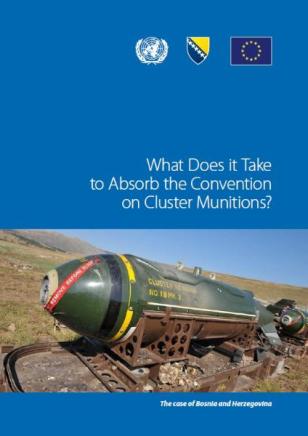What Does It Take to Absorb the Convention on Cluster Munitions? The Case of Bosnia and Herzegovina
What Does It Take to Absorb the Convention on Cluster Munitions? The Case of Bosnia and Herzegovina
June 24, 2013
This study assesses the capacity of Bosnia and Herzegovina to absorb its commitments stemming from the Convention on Cluster Munitions (CCM). It addresses the different implementation modalities used by Bosnia and Herzegovina in order to comply with its international obligations by looking at how the state has been implementing the treaty obligations and addressing challenges therewith.
The study paints a rather divergent picture of those modalities in delivering the commitments out of which three stand out:
- Partnership modality;
- Procedural and legislative readjustments;
- Absorption in pre-existing policy framework.
Those three modalities arise from our approach: the analysis of the systemic solutions in implementation of the CCM with an emphasis on mechanisms developed by Bosnia and Herzegovina in assuming the requirements of the Convention.
In order to achieve this aim the study describes how Bosnia and Herzegovina has been managing four important obligations contained in the CCM: the destruction of cluster munition stockpiles (Article 3), the clearance and destruction of cluster munition remnants as well as risk education (Article 4), victim assistance (Article 5) and the imposition of penal sanctions in order to prevent and suppress any activity prohibited under the Convention (Article 9).
By independently describing the modus operandi in Bosnia and Herzegovina this study assists the country in addressing the challenges ahead, identifies the support that Bosnia and Herzegovina can receive from non-governmental organisations, and provides a set of recommendations on the way forward. The State Parties to the CCM will also benefit from the findings of this study since they will be presented with a set of best practices on how to absorb the obligations that stem from the CCM (e.g. by partnering with international organisations) and with recommendations on how to avoid obstacles they may encounter.

 Locations
Locations





